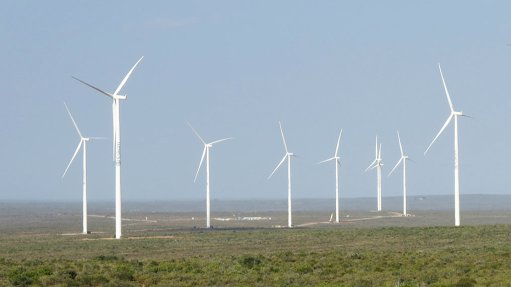A step forward?
Does Africa’s proposed enhancement of trade efficiency and promotion of economic growth in the Tripartite Free Trade Area (TFTA) – comprising the Common Market for Eastern and Southern Africa, (Comesa), the East African Community and the Southern African Development Community – represent a small step for man or a giant leap for mankind.
Well, there are a few issues to unpack here. Can one still reference ‘man’, or even ‘mankind’? Aren’t these considered gender insensitive? That said, the temptation is to respond: “Well, every man for himself.” With India’s aspiration of sending an astronaut to the Moon by 2040, I wait with bated beath to hear the Neil Armstrong equivalent. While on their walk, the astronauts could retrieve the four items that Armstrong and Buzz Aldrin are supposed to have left on the Moon: a tube containing the US flag; a television camera; tools for collecting moonstones and dust; and hygiene items, various containers, canisters and packages. This litter was accumulated during the 21 hours and 36 minutes they spent on the Moon’s surface – clearly ignorant of the slogan ‘can it for a greener planet’. Just in case you want to take issue with my use of the word ‘planet’, a National Aeronautics and Space Administration blog references the Moon as a planet, but it is silent on ‘Moon litter’. But then, as no one owns the Moon, no one is responsible for keeping it clean and tidy. Well, that gives the man on the Moon a free pass.
But I am seriously digressing. From October 9 to 11, the World Customs Organisation, or WCO (yes, there is always another acronym, and this is not the last), met in Zambia to assist the Comesa secretariat in updating the rules of origin from HS2017 to HS2022. Just one point of clarification: HS stands for the Harmonised Commodity Description and Coding System, and is amended on January 1 at five-year intervals. The HS2022 was introduced on January 1, 2022, or 671 days ago. Well, better late than never, for what the WCO considers ‘a step forward’.
In essence, cutting through all the gumph (which I use as a technical term) the rules of origin must apply equally for all purposes of nonpreferential treatment, and preferential treatment; must be objective, understandable, and predictable; must not be used directly or indirectly as instruments to pursue trade objectives; and must not, in and of themselves, have a restrictive, distorting or disruptive influence on international trade.
The European Union-funded workshop is said, by the WCO, to have “marked a crucial milestone in streamlining trade operations in the TFTA region”. The main objective of the workshop was to assist the Comesa secretariat and the TFTA States in aligning the rules of origin with the HS 2022 edition, thus reducing the risk of misclassifying goods. The draft updated TFTA rules of origin will now be submitted to the TFTA Technical Working Group on Rules of Origin for validation. So, is this really a ‘step forward’, and just how long will it be before it is enacted or published? If you are taking issue with me questioning the ‘step forward’, consider this: there are seven steps in the writing process, which raises the question of which step drafting constitutes. The seven steps can be broken down into planning, drafting, sharing, evaluating, revising, editing and publishing. So Step 2, or 28.57% of the way then!
The Rules of Origin Africa Programme invited experts from the Comesa member States to contribute to the alignment exercise and build up their competence, so as to be equipped to conduct the same exercise for the next HS editions. During the workshop, participants reviewed the TFTA rule documents, identifying chapters affected by HS amendments. They provided comprehensive comments that will be considered by the Tripartite States’ experts during the validation of the technical updated draft. The participants proposed a matrix-format list of rules containing the updated TFTA list rules of origin for Tripartite States’ consideration.
Through assistance, the TFTA has stepped up to the plate. It now needs to swing, and then preferably not miss.
Article Enquiry
Email Article
Save Article
Feedback
To advertise email advertising@creamermedia.co.za or click here
Press Office
Announcements
What's On
Subscribe to improve your user experience...
Option 1 (equivalent of R125 a month):
Receive a weekly copy of Creamer Media's Engineering News & Mining Weekly magazine
(print copy for those in South Africa and e-magazine for those outside of South Africa)
Receive daily email newsletters
Access to full search results
Access archive of magazine back copies
Access to Projects in Progress
Access to ONE Research Report of your choice in PDF format
Option 2 (equivalent of R375 a month):
All benefits from Option 1
PLUS
Access to Creamer Media's Research Channel Africa for ALL Research Reports, in PDF format, on various industrial and mining sectors
including Electricity; Water; Energy Transition; Hydrogen; Roads, Rail and Ports; Coal; Gold; Platinum; Battery Metals; etc.
Already a subscriber?
Forgotten your password?
Receive weekly copy of Creamer Media's Engineering News & Mining Weekly magazine (print copy for those in South Africa and e-magazine for those outside of South Africa)
➕
Recieve daily email newsletters
➕
Access to full search results
➕
Access archive of magazine back copies
➕
Access to Projects in Progress
➕
Access to ONE Research Report of your choice in PDF format
RESEARCH CHANNEL AFRICA
R4500 (equivalent of R375 a month)
SUBSCRIBEAll benefits from Option 1
➕
Access to Creamer Media's Research Channel Africa for ALL Research Reports on various industrial and mining sectors, in PDF format, including on:
Electricity
➕
Water
➕
Energy Transition
➕
Hydrogen
➕
Roads, Rail and Ports
➕
Coal
➕
Gold
➕
Platinum
➕
Battery Metals
➕
etc.
Receive all benefits from Option 1 or Option 2 delivered to numerous people at your company
➕
Multiple User names and Passwords for simultaneous log-ins
➕
Intranet integration access to all in your organisation

















